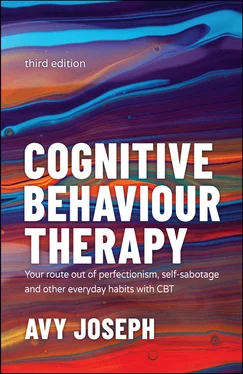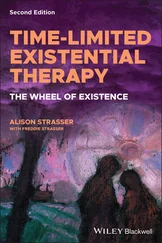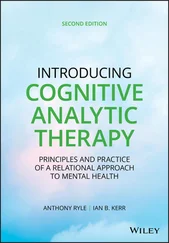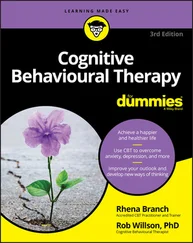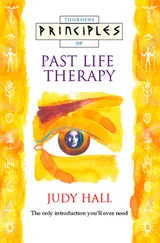Avy Joseph - Cognitive Behaviour Therapy
Здесь есть возможность читать онлайн «Avy Joseph - Cognitive Behaviour Therapy» — ознакомительный отрывок электронной книги совершенно бесплатно, а после прочтения отрывка купить полную версию. В некоторых случаях можно слушать аудио, скачать через торрент в формате fb2 и присутствует краткое содержание. Жанр: unrecognised, на английском языке. Описание произведения, (предисловие) а так же отзывы посетителей доступны на портале библиотеки ЛибКат.
- Название:Cognitive Behaviour Therapy
- Автор:
- Жанр:
- Год:неизвестен
- ISBN:нет данных
- Рейтинг книги:5 / 5. Голосов: 1
-
Избранное:Добавить в избранное
- Отзывы:
-
Ваша оценка:
- 100
- 1
- 2
- 3
- 4
- 5
Cognitive Behaviour Therapy: краткое содержание, описание и аннотация
Предлагаем к чтению аннотацию, описание, краткое содержание или предисловие (зависит от того, что написал сам автор книги «Cognitive Behaviour Therapy»). Если вы не нашли необходимую информацию о книге — напишите в комментариях, мы постараемся отыскать её.
Cognitive Behaviour Therapy
Cognitive Behaviour Therapy
Cognitive Behaviour Therapy — читать онлайн ознакомительный отрывок
Ниже представлен текст книги, разбитый по страницам. Система сохранения места последней прочитанной страницы, позволяет с удобством читать онлайн бесплатно книгу «Cognitive Behaviour Therapy», без необходимости каждый раз заново искать на чём Вы остановились. Поставьте закладку, и сможете в любой момент перейти на страницу, на которой закончили чтение.
Интервал:
Закладка:
Library of Congress Cataloging‐in‐Publication Data
Names: Joseph, Avy, author.
Title: Cognitive behaviour therapy : your route out of perfectionism, self‐sabotage and other everyday habits with CBT / Avy Joseph. Description: Third edition. | Hoboken, NJ : Wiley, [2022] | Includes index.
Identifiers: LCCN 2021062394 (print) | LCCN 2021062395 (ebook) | ISBN 9780857089427 (paperback) | ISBN 9780857089441 (adobe pdf) | ISBN 9780857089434 (epub) Subjects: LCSH: Cognitive therapy—Popular works.
Classification: LCC RC489.C63 J67 2022 (print) | LCC RC489.C63 (ebook) | DDC 616.89/1425—dc23/eng/20211228
LC record available at https://lccn.loc.gov/2021062394
LC ebook record available at https://lccn.loc.gov/2021062395
Cover Image: © Felix Furo/Shutterstock
Cover Design: Wiley
I wish to dedicate this book to the memory of my father .
Acknowledgements
Chris Hynes for unconditional love, help and support. My family for their love and encouragement.
Professor Windy Dryden for his clinical and professional guidance.
My colleagues and friends at the College of Cognitive Behavioural Therapies and our REBT enthusiastic students.
Introduction to the Third Edition
CBT is recognised as one of the leading, evidence‐based talking therapies. CBT places much emphasis on currently held beliefs and attitudes, painful emotions, and problematic behaviours that can sabotage a fuller experience of life. CBT teaches us a philosophy of life that can be learned by everyone in order to be happier.
The ideas and philosophies in CBT stem from ancient and modern philosophers, science, psychology, common sense and humanity. CBT is supported by a wealth of research, is used extensively by the NHS and recommended by NICE (National Institute for Health and Clinical Excellence), for many emotional and psychological problems.
There are many types of CBT. Rational Emotive Behaviour Therapy (REBT) is one of the cognitive behaviour therapies under the CBT umbrella. It is an evidence‐based, psycho‐educational and philosophical model developed by Albert Ellis. Since the first edition, REBT has continued to grow. Research in REBT has demonstrated both its effectiveness and efficacy for both clinical and non‐clinical problems.
REBT is grounded in acceptance: acceptance of the past, present, future and of the self, other and life. Acceptance does not mean approval. Sometimes people ask ‘but if I accept failure then doesn't it mean that I'm okay with it or that I didn't mind failing?' The answer is an absolute no. Failure does matter to most people, and most of us don't like it, but it does happen. Acceptance means acknowledgement of this reality, in this particular example. When we overcome this misunderstanding, self‐confidence, emotional health, well‐being and life goals become much easier to achieve.
The third edition maintains its concise nature but introduces the concept of action tendency. When you experience a negative emotion, you will have a tendency to act or behave in a certain way. Action tendency means what you feel like doing when experiencing a negative emotion. It explains why it is important to act against the action tendency when one is stuck emotionally. Some concepts are repeated in different ways. This is deliberate. Repetition helps us internalize the learning in order for it become habitual and effortless.
The ideas in this book are heavily influenced by REBT theory, but some concepts stem from other CBT models and self‐image psychology and hence I am using the term CBT as a general rule. In this book I will show you how using CBT can help you set yourself up for success and overcome those beliefs and habits that sabotage your life.
Avy Joseph
1 Understanding CBT for Goal Achievement
‘People are not disturbed by events but by the view they hold about them.’
Epictetus, Stoic philosopher c. AD 75
This chapter will introduce you to some of the basic ideas and principles of Cognitive Behaviour Therapy (CBT) and how you can use it to help you achieve your goals. First, though, what does Cognitive Behaviour Therapy (CBT) actually mean?
Cognitivesimply means our ‘thinking processes’: how we think, how we acquire information and knowledge, how we store it in our head, how we evaluate it and how we base some of our decisions on it.
Behaviourmeans our action or reaction to something. It's the doing bit. Our behaviour can be conscious or unconscious (out of our conscious awareness). In CBT, the word ‘behaviour’ comes from a branch of psychology called ‘behaviourism’, which is concerned with what can be observed rather than what can be speculated or assumed. It is based on what you have learned and become accustomed to, how this affects your actions and feelings, and how you can unlearn what you have learned in order to change.
Therapymeans the treatment for a health problem, after a diagnosis or an assessment has been made.
CBT is one of the counselling therapies that examines how our thinking, attitudes, beliefs, opinions and behaviour are formed, how they affect our success, our lives and feelings, and how changing them impacts on our performance. The ideas stem from both ancient and modern thinking in philosophy, science, psychology, common sense and humanity.
Here are some of basic principles central to CBT. Many may be shared by other therapeutic approaches but the combination of these principles goes some way towards understanding CBT.
THE EMOTIONAL RESPONSIBILITY PRINCIPLE
‘People are not disturbed by events but by the view they hold about them.’
This principle is at the heart of nearly all emotional and behavioural change. It can be challenging because you may believe that it's what has happened to you that ‘makes’ you feel how you feel and do what you do in the here and now.
I hope that by questioning this you will learn that what you believe may be stopping you from empowering yourself to move forward with your life. This in turn may help you in the pursuit of your desired goals.
Is it true that events, situations or people make us feel what we feel?
First, let's look at the popular notion that your feelings are ‘caused’ by events, situations or other people.
Think of a past event that you think ‘made’ you feel and do something. By this logic the only way you can change your feelings now is to wish the event had not happened in the first place.
Maybe you think there's someone else who has ‘made’ you feel and act in a certain manner. In which case, the only way you can change your feelings now is to get that person from the past to undo what they did or said. And if that person is now deceased, how can this be done?
Читать дальшеИнтервал:
Закладка:
Похожие книги на «Cognitive Behaviour Therapy»
Представляем Вашему вниманию похожие книги на «Cognitive Behaviour Therapy» списком для выбора. Мы отобрали схожую по названию и смыслу литературу в надежде предоставить читателям больше вариантов отыскать новые, интересные, ещё непрочитанные произведения.
Обсуждение, отзывы о книге «Cognitive Behaviour Therapy» и просто собственные мнения читателей. Оставьте ваши комментарии, напишите, что Вы думаете о произведении, его смысле или главных героях. Укажите что конкретно понравилось, а что нет, и почему Вы так считаете.
